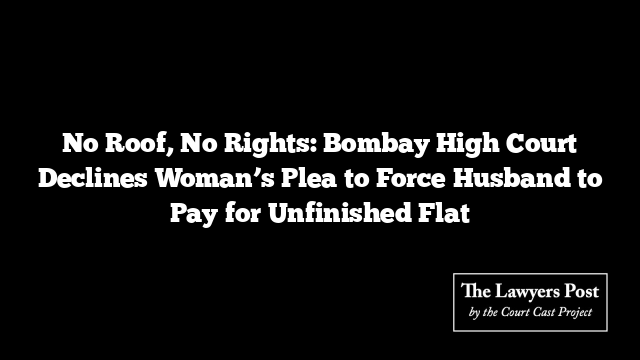A woman, seeking to bind her estranged husband to an old promise made during better times, found no support in the Bombay High Court when she asked it to compel him to pay for a partially built flat they had once agreed to buy together.
The apartment was booked in 2020, not as part of a future investment, but as a symbol of reconciliation—an attempt to stitch back a fraying marriage. But when the relationship crumbled again and outstanding dues mounted, the wife turned to the court under the Domestic Violence Act, asking it to hold her husband financially accountable for the pending instalments.
Her plea was met with a firm judicial no. The court clarified that this was not a matter of domestic violence, but a contractual understanding—one that didn’t merit intervention under the law designed to protect against abuse and mistreatment within a household.
The judge noted that there was no evidence of coercion, fraud, or manipulation in the flat’s purchase. It was a voluntary decision, and though relations soured later, the financial fallout from a failed reconciliation did not qualify as “economic abuse” under the Act.
In a system already burdened with cases of genuine domestic hardship, the court drew a clear line: failed emotional reconciliations and jointly signed housing agreements, however painful, don’t automatically transform into legal liabilities under protection laws.





